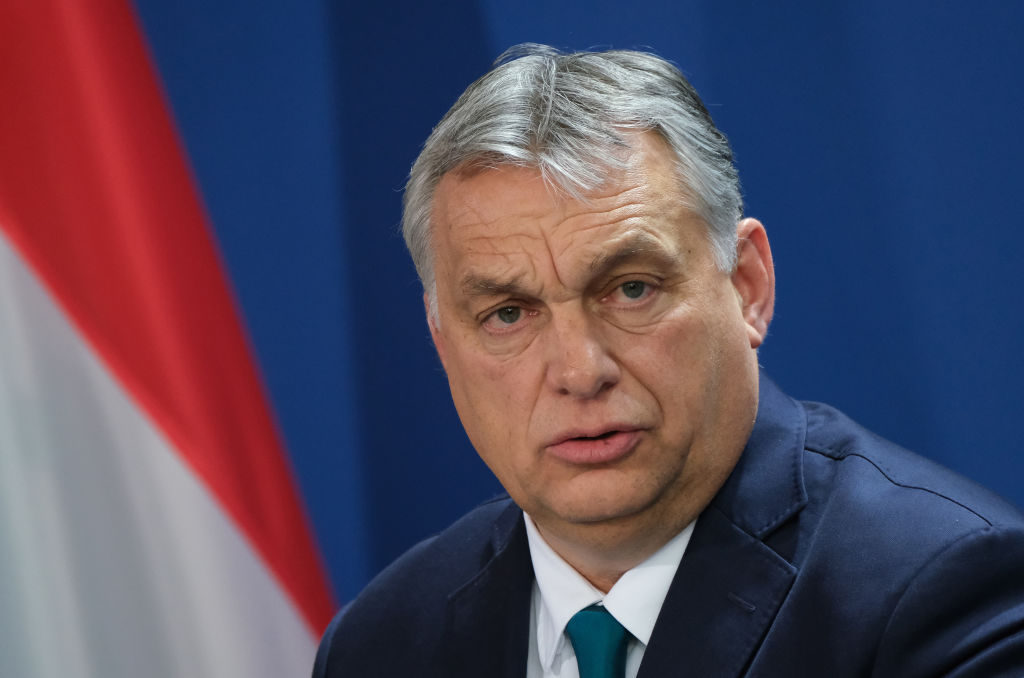The U.S. and Hungary: Friends in Need of a Better Way

When the Wall fell in 1989, I was the U.S. Embassy political counselor in East Berlin. We immediately realized something new would replace the Cold War, but one of my few certainties was that if Moscow released its grip on the Warsaw Pact, Hungary – Eastern Europe’s freest and most economically diverse society — would be quickest to integrate smoothly into Western Europe.
President George H.W. Bush’s goal of a “Europe whole and free” has come closer, but we are not there yet, and Hungary, where I held a similar position earlier, has lagged. Respected observers Freedom House and Transparency International chart a course that puts it dangerously close to, even within, the autocratic zone.
Worse, it champions a nationalist populism and “illiberal democracy” directly challenging key principles to which the European Union (EU) of which it is a member and the U.S., its ally in NATO, subscribe. What should be done?
First, keep a sense of proportion. Differences with Hungary are not equal to those China, Russia, North Korea and Iran present. But they do matter, because they endanger the cohesion the Transatlantic Alliance needs in order to deal effectively with those more problematic countries.
As Hungary has encouraged divisions with Brussels and Washington, it has moved closer to Russia and China, for example forcing from Budapest a world-class U.S. institution it considered too liberal – the Central European University – while inviting in China’s Fudan University.
Secretary of State Blinken began a hopeful process to reverse this trend last month, stating “real concern that is shared by … many Hungarians over the decline of the pluralism and diversity and independent voices …. That is the fabric of democracy, and we would certainly urge … Hungary to promote an open environment.” The U.S. and EU, he added, “believe that our collective interests are best served by trying to cement democratic norms of rule of law and cooperation based on common values.”
His criticism contrasted with the Trump administration’s tolerance for Prime Minister Viktor Orban’s government. But Mr. Blinken also noted that the U.S. wants to continue to work with its ally on security and other matters.
Such a balanced, non-polemical approach is the recipe for progress. Hungarians are worth the effort. Their sensitive geography, bordering Ukraine, and political weight at the front of Europe’s debates on divisive issues like emigration, are part of the justification. Equally relevant is that the country remains culturally and scientifically exceptional.
Hungarians came to help George Washington’s army. Kossuth, their great son, won democrats’ admiration during their 1848 independence struggle, as did those who fought Soviet oppression in 1956.
Hungarians are proud and react poorly if spoken down to or told what they must do, but history shows that if we are respectful on multiple levels, we can cooperate to mutual interest and come closer together.
Our embassy never hid differences with the communists in 1980s Budapest, but discussed them quietly while concentrating on what could be done together about terrorism and drugs, even an investigation of a major art theft. We used the Helsinki Final Act’s fragile but real leverage to help Hungary expand Western contacts, but accepted no restrictions on our right to befriend and support dissidents. Today there are many cooperative measures beyond NATO that can be emphasized: green energy and battery technologies, for example, are fertile fields for climate change partnerships.
Every Hungarian still feels bitterly the Trianon Treaty after World War I that stripped the country of two-thirds of its territory and three million ethnic Hungarians. Activism on behalf of Magyars in neighboring Romania, Slovakia, Ukraine and Serbia is central to Orban’s popularity. While rejecting border changes, we could more vocally advocate fuller cultural and linguistic human rights that the Helsinki Final Act and Organization for Security and Cooperation in Europe call for, beginning with seminars on how further improvements could improve stability for all in a still fragile region.
In return, we should express forcefully but quietly the importance we attach to Hungary closing its dangerous gap with Brussels. We should also be clear that we support EU efforts to apply more stringent rule-of-law tests to recipients of its Covid relief stimulus package.
Optimism, even bombast, is familiar in many national anthems, but history and geography have been harsh on Hungary. Its Himnus is tinged with melancholy:
“O Lord, bless … the Magyars …
Long torn by ill fate …
This nation has suffered for all sins
Of the past and of the future!”
Natural friends have much to gain from greatly improving their relationship.
Related posts:
Category: AMERICAS, EUROPE & EURASIA, FOREIGN POLICY & SECURITY, POLITICS

